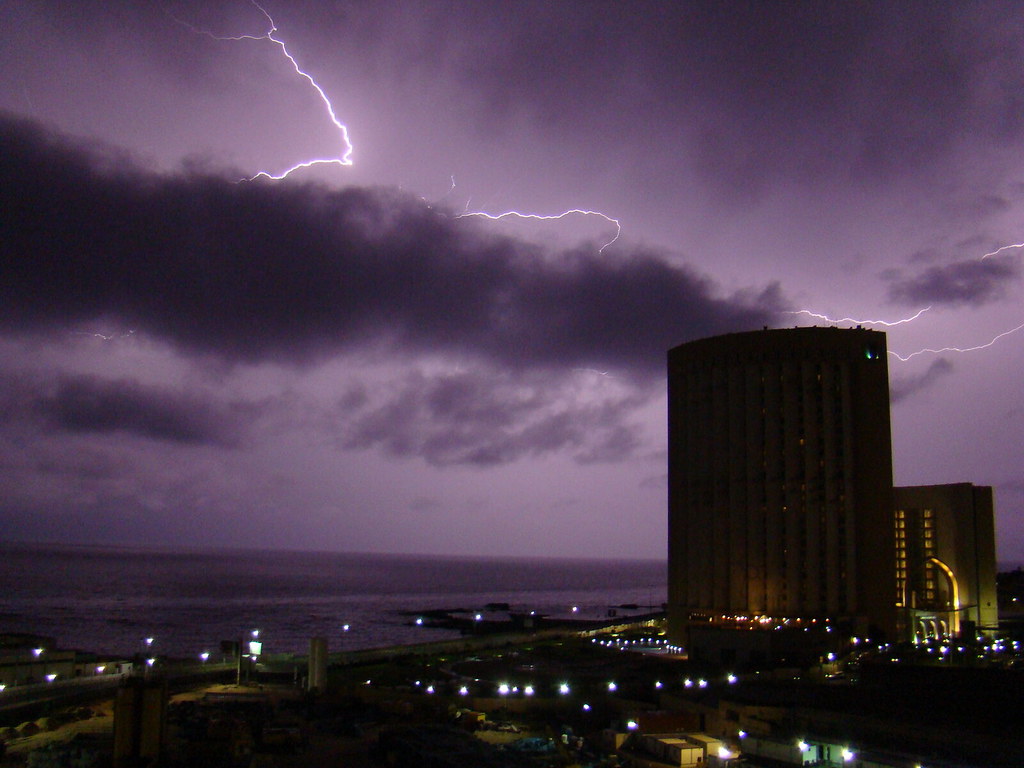With the Libyan National Army’s (LNA) assault on Libya’s capital Tripoli continuing after a month, with little serious condemnation from regional or international powers, it seems the conflicts that have plagued Libya since the 2011 civil war in the country are coming full circle with the emergence of a new strongman.
LNA leader Field Marshal Khalifa Haftar initially took the world by surprise when he launched his surprise attack on Tripoli in early April. He is trying to wrest control of the capital away from the Government of National Accord (GNA) and the militias affiliated with it.
So far, approximately 400 people, including civilians, have been killed in this operation which has residential areas shelled by the LNA. Another 50,000 people have been displaced. According to the Red Cross, “densely populated residential areas are gradually turning into battlefields.”
The GNA’s ambassador to the United Nations has also asked the U.N. Security Council to launch a “fact-finding mission” to find out if Haftar’s forces are committing war crimes. In his letter, written on April 18, Ambassador Elmahdi Elmajerbi said that LNA violations have to date included: “the killing and displacement of civilian citizens, the destruction of public and private properties, the recruitment of children and involving them in wars and hostilities.”
The letter also said that the LNA have been “targeting the civilian neighbourhoods and populated areas and exposing them to heavy artillery and Grad missiles.”
This is unlikely going to spur action against the LNA.
While the GNA is the U.N.-recognized government in Libya Haftar has garnered support from a multitude of countries. Both France and Russia support him since they believe he is a force that can unite Libya again and combat Islamists in the country. Egypt supports him for the same reason, seeing his control over eastern Libya as beneficial for its own security.
Western diplomats sought to convince Haftar not to attack Tripoli in March, telling him that “he could become a successful civilian leader if he committed himself to pursuing a political settlement.”
Instead, the field marshal launched his surprise attack on the capital at the same time U.N. Secretary-General Antonio Guterres was visiting to prepare a conference on national reconciliation under the belief that Haftar supported such initiatives.
Then, on May 6, mere hours after the U.N. called for a one-week humanitarian ceasefire, Haftar urged his forces to fight harder to conquer Tripoli now that Ramadan, which he declared a month of holy war, has begun.
U.S. President Donald Trump previously supported U.N. reconciliation efforts efforts but has since flip-flopped by expressing his support for Haftar’s offensive in a phone call with the Libyan strongman on April 15. Shortly after that call, Haftar’s forces carried out what were likely drone strikes on Tripoli.
In his phone call with Haftar, according to a White House statement, Trump “recognized Field Marshal Haftar’s significant role in fighting terrorism and securing Libya’s oil resources, and the two discussed a shared vision for Libya’s transition to a stable, democratic political system.”
“The U.S. appears to have accepted the view from its chief Middle Eastern allies that Haftar’s assault can be seen as the act of a strong leader fighting jihadist militias in Tripoli,” noted a report in The Guardian. “But many independent Libyan experts claim Haftar has no commitment to democracy, and himself deploys Salafist militia in his self-styled Libyan National Army.”
Haftar’s LNA includes the Madkhalis group, which previously supported Gaddafi and also fought to remove the Islamic State affiliate that emerged in the war-torn country in recent years.
It appears that the conflict in Libya is gradually coming full circle. In 2011, early in the Arab Spring, Colonel Muammar Gaddafi infamously used the military in an attempt to crush a popular uprising in the country’s eastern city of Benghazi. NATO intervened militarily to stop him. U.N. Security Council Resolution 1973, which passed with Russian acquiescence, gave the alliance the authority to protect civilians from Gaddafi’s armed forces with a no-fly zone.
NATO went one step further. It gave supporting airstrikes to the ragtag rebel groups fighting Gaddafi and helped them advance from Benghazi and march on Tripoli. Gaddafi’s four-decade rule came to a grisly end when the rebels brutally murdered him in his hometown of Sirte.
Since then, Libya has been engulfed by internal conflicts and has failed to establish an effective central government. Militias have capitalized on the instability in the country.
Haftar initially served under Gaddafi when he seized power in a coup in 1969. Later, however, he tried to overthrow the Libyan dictator and spent years in exile in the United States. He returned and participated in the 2011 war against the regime.
Over the last five years, he has made major, albeit slow, progress in seizing large swathes of the country in a clear bid to unite it all under his rule.
In a series of operations, he captured Benghazi and Derna along with the Oil Crescent, aptly named since most of Libya’s oil reserves are there, from his rivals. Before he began his attack on Tripoli on April 4 Haftar had focused on capturing large swathes of the country’s southwest.
If Haftar succeeds in conquering Tripoli then Libya will be largely controlled by a single leader for the first time since Gaddafi’s overthrow and the conflicts that have ravaged the country throughout this decade will have in a sense come full circle.
Photo: Tarek Siala

